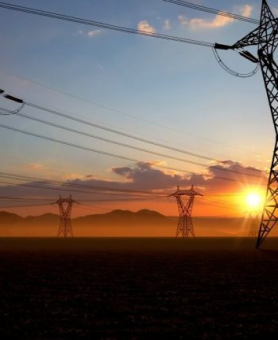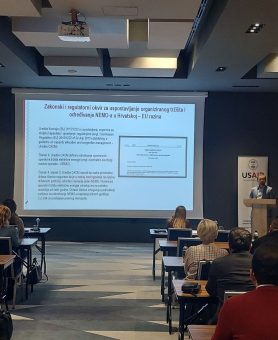
Electricity
USAID EPA project goals
The project has undertaken several activities that complement the functioning of the open electricity market:
Activities related to the distribution system operator (DSO)
A DSO is required to harmonize its operations with the requirements of EU directives, which, among other things, include the development of a special compliance program and the appointment of service or person in charge of monitoring and assessing the compliance of distribution system operators (the so-called compliance officer). The EPA project is providing technical assistance to DSOs and regulatory bodies in developing compliance programs and defining the conditions for the appointment of compliance officers, all of which will improve the independence and transparency of their operations. Also, EPA is working to harmonize distribution network rules with the requirements arising from the adopted rules and guidelines on the operation of EU networks, as well as from relevant technical standards in this area.
Activities related to the establishment of a power exchange (day-ahead market and intraday market)
A day-ahead market or an intraday market is established through a power exchange (PX), where a power surplus is traded day-ahead or within 24 hours. Companies licensed by competent institutions can participate in the PX. To this end, the EPA project is providing technical assistance to the competent institutions in defining the regulations required for the establishment and functioning of the day-ahead and intraday market, according to the model chosen by the competent institutions.
Virtual power plants
A virtual power plant is an organized group of small participants in the power market that pool production to achieve economic benefits and increase the security of supply. Members of a virtual power plant can be small power plants, electricity storage facilities, as well as customers with controllable consumption. To enable this, EPA is providing technical assistance to the competent institutions in defining the concept of virtual power plants in BiH and the regulatory framework that will enable the establishment and functioning of virtual power plants in the power market.
Consumption management
Consumption management enables power consumers to provide services in the electricity system by increasing or decreasing their consumption, thus achieving economic benefits. Consumer participation in consumption management is achieved by pooling into groups, which are represented on the power market by an aggregator. The EPA project is providing technical assistance to the competent institutions in developing a regulatory framework that will enable an association of consumers to pool into groups to provide consumption management services and define the role of aggregators.
Removing barriers that prevent households from switching suppliers
The retail power market has been formally opened for the household category as of January 1, 2015; however, not all preconditions have yet been met for the unhindered supplier switching process for this category. One of the key obstacles is the lack of a methodology for calculating supplier costs incurred due to deviations in household consumption compared to planned consumption. The lack of this methodology in practice means that suppliers are unable to offer customers in this category a price that reflects their actual costs. To remove these obstacles, the EPA project is providing technical assistance to the competent institutions in developing a methodology for calculating the costs of imbalances of customers from these categories, so that suppliers can calculate and offer mutually competitive prices.


